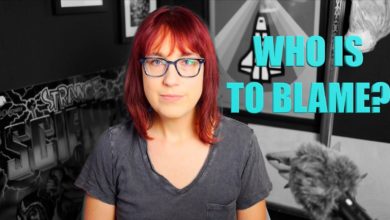She is woman, here’s her woo…
I happened to catch this on the morning show last week. Helen Reddy, who co-wrote and sang “I am Woman(Hear me Roar)” – the great rally cry for feminism in the 70s. She won a Grammy for the song and famously thanked God during her acceptance speech “because She makes everything possible.”
35-odd (apparently very odd) years later, she’s doing the morning show tour, talking about her new autobiography and the fact that she’s a licensed hypnotherapist. She also support psychics, Loose change(the 9-11 ‘Truther’ nutjobs) and a slew of liberal conspiracy theory types. (See the sections on her site with her recommended reading and links).
Now, I’m the first to admit that just being a celebrity musician or actor doesn’t mean you have to be a role model or, even smart. But it is sort of sad that the woman who sang the liberation anthem of a generation of women support pseudoscience, half-truths and woo.
Oh, well, we’ll always have Gloria Gaynor… and, of course, my personal favorite feminist, Ms. Piggy… :)





It is sad, but that is the inevitable consequence of becoming an adult and acquiring the ability to think on your own. You come to the understanding that all role models you have ever had, your parents, teachers, etc were human too, and like all idols, icons and images have feet of clay.
When you are a healthy role model, you are aware of your limits, you want your students, children and followers to have stronger feet than you do. To not adopt your limits as their own.
It’s always nice to find someone else who has chosen Muppets as role-models. *grin*
I’m going to take this opportunity to suggest a topic that’s been bothering me so much that it actually compelled me to register: could one of you please please please write some more on woo in the feminist community? There’s a whole lot there, from “goddess worship” to science being “patriarchal” and therefore “wrong” to “alternative” women’s health practices and so on… I hate to say it, but I think that a lot of woo is marketed towards women in general, and many feminists have been a little too eager to take it in.
As a feminist and a skeptic, it can be really depressing. It’s also difficult to try to disprove some of these claims; I try to use the baloney detection kit, but I’m still puzzling over some issues (e.g., whether midwifery has any kind of legitimacy at all or is just quackery, the whole “girls are inherently better at language and boys are better at math” arguments, etc.) I really don’t want to have to compromise my skepticism to be a supportive feminist.
Anyway, this is just a suggestion. Keep up the great writing.
How would you define ‘feminist community’?
Is it just people (however different) who believe in gender equality, or something more specific?
If you think A,B,C about issues 1,2,3, and someone says “I’m a feminist and I think X,Y,Z about issues 1,2,3!”, why should your response be any different to if someone had just said “I think X,Y,Z!”
The idea of doing alternative things largely because they’re alternative to something defined as male does leave susceptible people open to all kinds of bull, meaning a shyster isn’t likely to be too far away.
I suppose there’s also the lovely rationalisation that a critic/skeptic is a traitor to the sisterhood as well as some dupe of the establishment.
Ooo, interesting topic! I’d be very interested in more threads on this, since I was thinking something very similar yesterday when I was meandering through the aisles of my much-loved organic food store. I know we’ve talked some already about organic food and associated woo, but I’d be interested in a more far-reaching conversation about female-directed woo stuff.
There is a whole section of this grocery store with aromatherapy, mantra socks, incense, etc., which is not at ALL unusual in a store like that. But it gave me pause when I realized that having gotten to know the staff there after years of shopping there, I would say that they are generally very skeptical of traditional ways of thought — but that doesn’t necessarily mean they are skeptically minded as such. They might just buy into a different set of woo.
Hmmm.
OK, my brain’s still going on this one. I’m particularly interested in the whole topic of midwifery, since it (like the folks at the grocery store) has elements that would REALLY appeal to a skeptic, but it also lends itself to goddess thought, as was mentioned.
I used a midwife for both of my children’s deliveries, and had the best of both worlds since they were CNMs and worked under the auspices of a female MD who was available at all times to take over in case it became a medical issue — which childbirth, if it happens without complications, is not. After having read up and talked to people about some of the standard medical procedures that have sprung up around the process of giving birth, I became deeply skeptical of the accepted rhetoric and started looking around for other options.
So for me, it didn’t have anything to do with female empowerment or getting in touch with nature — it was more a matter of “but WHY should I do it that way?”
Could someone please clarify this one for me. In Sweden all midwives have a basic nursing degree plus at least a year of specialisation. What is it with the profession that is…woo-ish?
Here the feminist movement got caught up in the whole evil-patriarchal-satanists-are-eating-our-babies-movement. Scary stuff!
I’m just baffled by the idea of mantra socks. How would that even work?
There is nothing wrong with midwives. My mother was an RN and CNM (certified nurse midwife) who worked for Frontier Nursing in the backwoods of Kentucky. She delivered all of her children in a hospital.
The reason to deliver in a hospital is because of the low probability events that something might go wrong and need medical intervention ASAP. Transfer and treatment even 15 minutes later is too late for some emergencies. These emergencies are not predictable in advance.
Most women will not need emergency intervention. But for those that do, it could save the life of the baby or mother or both (or prevent irreversible brain damage). Estimating the likelihood of low probability events and planning for them is extremely difficult for humans. The magical thinking of “that won’t happen to me” is usually correct. When it is wrong, the consequences can be large.
There is a tremendous amount of misinformation surround what is called “home birth”.
An excellent site that debunks many of the myths (and outright lies) surrounding home birth advocacy is this site:
http://homebirthdebate.blogspot.com/
Which I highly recommend. The author uses science based evidence to debunk the wishful thinking (and lies) that home birth advocates use to ensnare women into their delusional mind state. Home birth advocacy is very much a cult.
>>”I realized that having gotten to know the staff there after years of shopping there, I would say that they are generally very skeptical of traditional ways of thought — but that doesn’t necessarily mean they are skeptically minded as such. They might just buy into a different set of woo.”
I’d say there’s a huge difference between humans of any kind or group being properly skeptical (in the sense of analysing an argument or position and seeing real flaws in it) and simply having an emotional aversion to certain conclusions or ways of thinking.
A true skeptic should also be self-critical, and at least try to examine their own alternative arguments as thoroughly as they examine those of other people.
Even if an argument or position appears flawed, even deeply flawed, that’s in no way a guarantee that an alternative isn’t going to be worse.
They’re rather nice-quality organic-cotton socks with words printed on the soles like “serenity” and “energy” and that kind of thing. They’re perfectly good socks, but it scares me a bit that some people probably think they make a difference in their everyday life.
I did actually buy a pair, but really for the wrong reasons. My sister and I both tend to have a very sarcastic and dark sense of humor, so understand that I wouldn’t have done this to anybody else. Last fall her home burned to the ground in the wildfires in California, with nearly everything she owned inside. So I bought her the mantra socks that said “SIMPLIFY.”
Fortunately she thought it was funny.
Helen Reddy, of “Pete’s Dragon”, gone woo-ish?
Another childhood crush bites the dust.
…and today on Skepchick, I learned that the woman who sang “I Am Woman” was in “Pete’s Dragon.” Previously, it was that Hedy Lamarr invented an algorithm for frequency-hopping. What next, finding out that Dr. Ruth was a trained army sniper?
I visited my sister yesterday and her friend had given her a book called something like Astrology of the soul. They were driving me nuts picking out appropriate things about each person that applied according to their birth sign. They couldnt understand they were cherry picking out of a bunch of generalized things listed. Many were applicable to anybody, such as “desiring acceptance from others to some extent”. Anyway since my sister is being treated for breast cancer ,I did not go too ballistic but just left the room as various people continued to be analyzed. Its the first time I saw her not wearing her wig (it was hot so she took it off). She went from nothing to stage 3 breast cancer during the 2 years she skipped mamograms because she was too busy. Just as a warning to other women readers who think they are too busy to take care of themselves.
Exactly. I had briefly considered home birth with my oldest child after a good friend had had a very positive home birth experience. I opted not to, and I am now the poster child for NOT having a home birth. I had a rare and unforeseeable complication after delivery in which my only apparent symptoms were water retention and thirst — and which would have resulted in cardiac arrest if it hadn’t been treated with serious pharmaceutical firepower within 15 minutes of my daughter’s birth.
If I’d delivered at home, I would have had an uneventful labor and delivery, had a nice cold glass of water, and died.